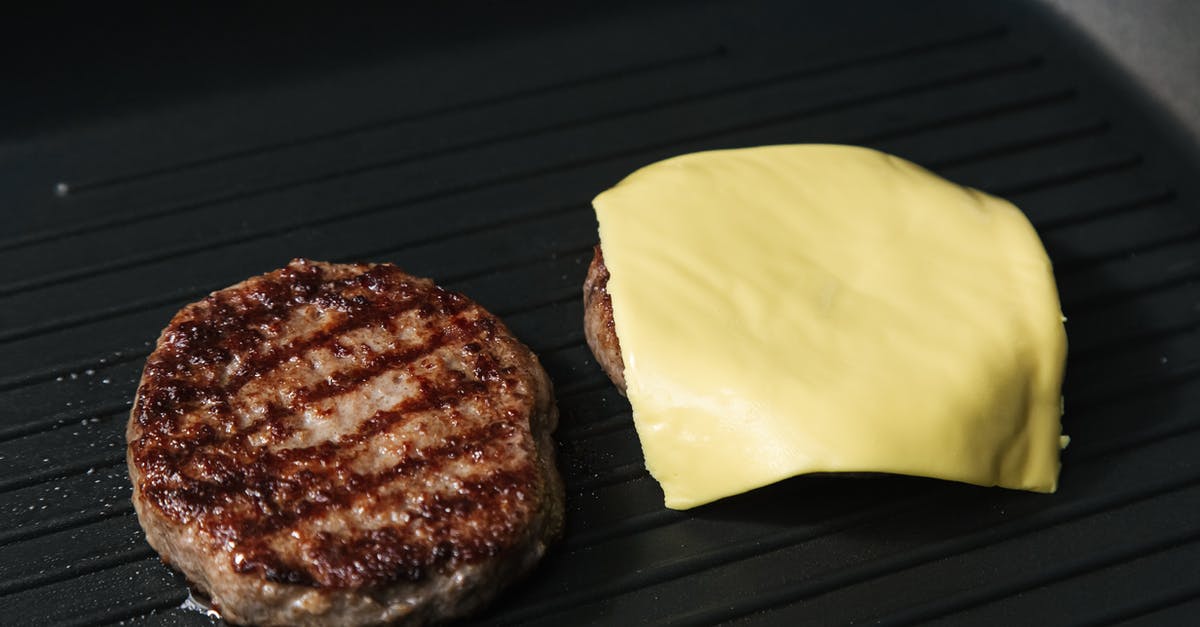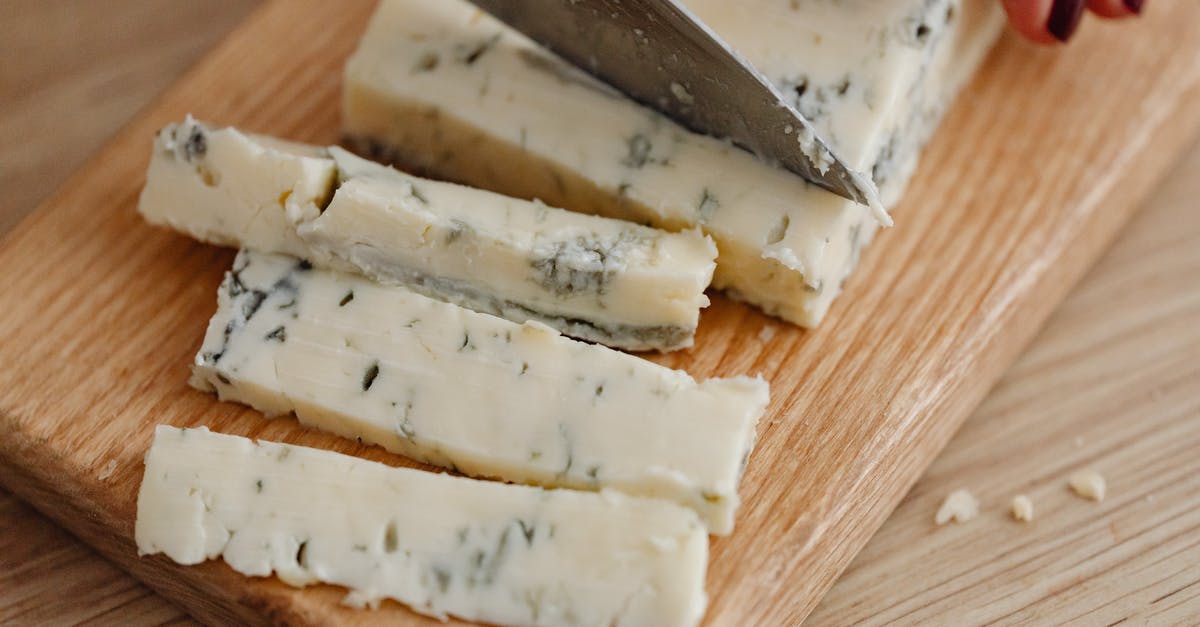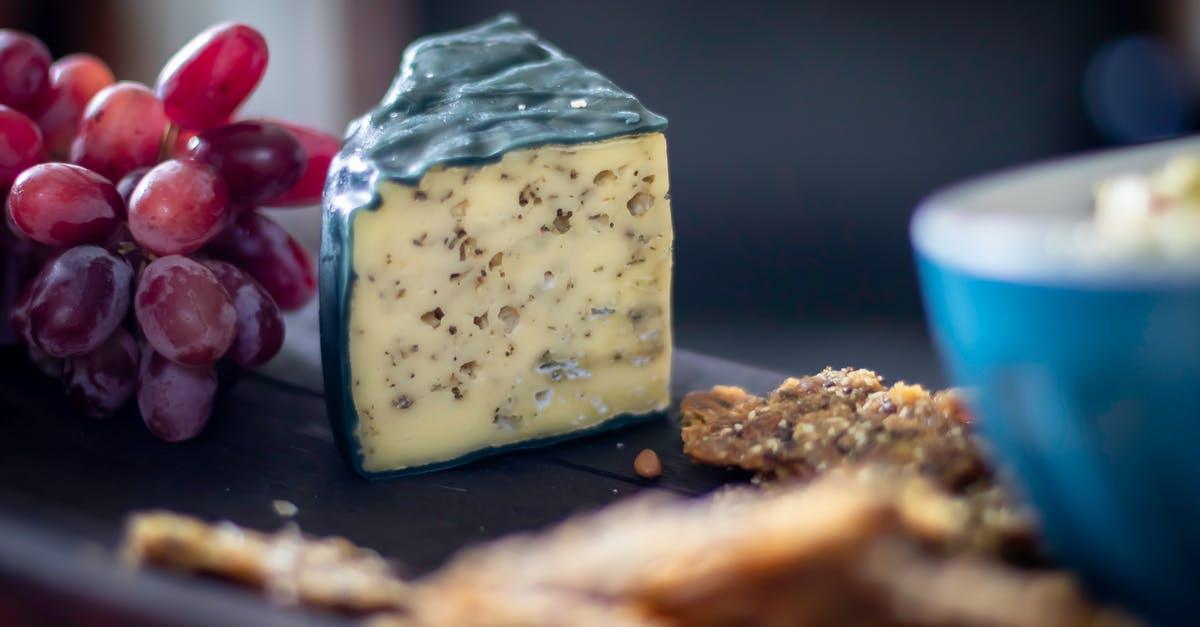CaCl2 and cheese making

I am learning to make cheese. I am reading up. I have questions.
What is the use of Calcium Chloride (CaCl2) in cheese making?
Amazon sells CaCl2(H2O)n hydrolysed Calcium Chloride at ~$8 for a 4 oz bottle.
Can I use the $2 pack of CaCl2 icemelter crystals (also sold by Amazon) instead? Or the huge $4.99 icemelter pack I got from the gas station?
Note: Hoping to prevent anecdotal answers. Before anyone says "purity" and "edibility" or "food grade",
- I would expect someone who actually knows how icemelter packs are made to be able to say icemelter packs are not suitable.
- Is there any edibility difference between the exposed open air conditions table sea salt is extracted, from how icemelter CaCl2
Best Answer
In general, calcium chloride is used in cheese making to stabilize and firm up the curd. It's more necessary in milk that has gone through the standard modern processing routine (pasteurization, homogenization, etc.). Heating and harsh handling of the milk messes up the balance of calcium in various milk components, and adequate calcium is needed to produce successful coagulation. It should generally NOT be used in cheeses where the curd needs flexibility, e.g., for stretching in mozzarella.
As for the proposal of using industrial chemicals in your food, I wouldn't do it unless it's actually labelled "food grade". I have a science background and know quite a bit about chemical manufacturing. Industrial chemicals may be produced in a multitude of processes on all sorts of equipment that may have handled other chemicals too. I'm sure ice-melt products generally have a pretty low threshold for this sort of stuff, since they want to prevent environmental contamination. On the other hand, a lot of ice melt stuff contains ingredients other than CaCl2 for various reasons. Some of those additives may not be safe for ingestion or approved as food ingredients.
In any case, even if it's "just" CaCl2, "food grade" materials have to meet even stricter specific regulatory standards that require such trace ingredients to be below dangerous thresholds when ingested (as opposed to simply exposed to on the skin or whatever might normally happen with icemelt).
Does that mean your particular "icemelter pack" stuff is dangerous to ingest? Possibly not, but I wouldn't use it in food unless it was labelled "food grade" or I contacted the manufacturer directly and got a straight answer from them saying it's safe to eat. No one in this forum can tell you how an industrial-grade chemical was produced or handled by a specific manufacturer. (I doubt you'll get a guarantee from a manufacturer unless it's already labelled as "food grade.")
Anyhow, there are cheaper alternatives, though. You can buy food-grade calcium chloride in crystalline form. (It's sometimes used in preserving, home-brewing, and other applications.) That will generally be a lot cheaper than buying the liquid. A quick search shows me a pound of this stuff can be had for $10 or less, and a pound should be adequate for making cheese with well over a thousand gallons of milk. I'm sure there are better deals to be found; this was one of the first hits I saw. (If you decide to go industrial, there are plenty of chemical companies which will sell you a 50 lb. bag of food-grade CaCl2 for around $50.)
You then just need to make up a solution of appropriate concentration to match your cheese-making CaCl2 liquid, which is typically around 30% CaCl2 by weight.
Pictures about "CaCl2 and cheese making"



Quick Answer about "CaCl2 and cheese making"
Calcium chloride (CaCl2) is often added to milk during cheese making. Cheese makers will dilute CaCl2 in water and add to the vat before rennet is added. CaCl2 is used to improve the rennet coagulation process.What does calcium chloride do to cheese?
Calcium Chloride is used when making cheese from homogenized, pasteurized or frozen milk to help restabilize milk structure and hasten curd set. Calcium Chloride can also be used at certain times of the year, when firm curd is hard to obtain due to changes in animal diet and stage of lactation.Why is cacl2 added to milk in cheese preparation?
Calcium Chloride - Liquid Calcium chloride is an essential cheese making ingredient. Calcium chloride will help milk coagulate better, especially when using milk which may be low in milk solids and/or overheated, or if using goat's milk or store bought milk which is pasteurized.What happens when calcium chloride is added to milk?
Abstract. Addition of calcium chloride to milk has positive effects on cheese-making because it decreases coagulation time, creates firmer gels, and increases curd yield.Can I make cheese without calcium chloride?
You can skip the calcium chloride and not put it in at all. It can still produce a nice cheese, if your milk quality is high. For best results, we recommend using calcium chloride.testing calcium chloride in cheesemaking
Sources: Stack Exchange - This article follows the attribution requirements of Stack Exchange and is licensed under CC BY-SA 3.0.
Images: Ron Lach, EKATERINA BOLOVTSOVA, Karolina Grabowska, Campbell Downie
